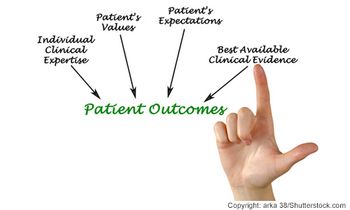
Adjusting to ICD-10 as a Solo Physician
By: Deborah Winiger, MD As a solo practitioner, I'm putting my faith in ICD-9 to ICD-10 crosswalks to code properly and avoid damaging my practice's bottom line.
ICD-10, the nightmare we have all hoped would never happen seems to be here.
The promise of better data collection and stratifying disease is great for statisticians and government agencies, but for physicians, it’s just more paperwork. As a solo physician who does all my own coding and has learned most of the ICD-9 codes I need by heart after many years of repetitive use, the task of learning a whole new code set without any overlap to the current system is overwhelming.
Like many others, I have been unsure as to how much preparation I need. My EHR has a crossover program to match ICD-9 to the most appropriate ICD-10 code, so hopefully it will work well. There has been promise for primary care that the majority of the codes used make up only a small percentage of ICD-10. This may not be the case for some specialties like orthopedics and emergency medicine, which will have a larger code set to learn.
There are many available resources to physicians from coding books to webinars as well as live and online courses. I haven't chosen to do these, instead focusing my attention on learning how my EHR program works and internal training. I do have a subscription to The Coding Institute's Family Practice Coding Alert newsletter, which also has an ICD-9 to ICD-10 crosswalk I have used a few times to prep our system.
The hope is this will work well and all the testing that Blue Cross, Medicare, and other insurers have done will work, but it does make me nervous. The biggest fear I have is the delay in payments that are being predicted. Luckily, my practice is in a position that we have a cushion and could cover expenses at least in the short term. I'm sure many other practices are not in the same situation and it's still my loss in terms of bottom line after I pay staff and expenses.
Hopefully, the crosswalks will work and it will be a matter of just adjusting and relearning a new code set, but time will tell. It is frustrating to add one more task to our days which are already packed with referrals, prior authorizations, and insurance issues, but I guess this is the price we pay for being able to take care of the patients that bring meaning to our careers.
Newsletter
Optimize your practice with the Physicians Practice newsletter, offering management pearls, leadership tips, and business strategies tailored for practice administrators and physicians of any specialty.






